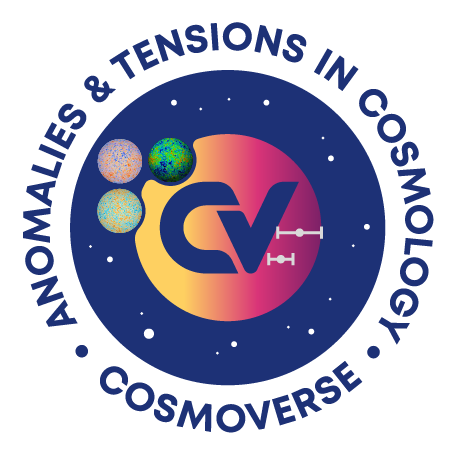What is your name, affiliation, academic position, and job title?
Konstantinos Dialektopoulos, Faculty of Mathematics and Computer Science, Transilvania University of Brasov, Postdoctoral Fellow
What is your journey?
I grew up in a small town in mainland Greece called Veroia. When I turned 18, I moved to Thessaloniki to do my BSc in Physics at the Aristotle University of Thessaloniki, then to Heraklion to do my MSc at the University of Crete and finally to Naples, Italy to do my PhD at the University of Naples “Federico II”. Since then, I travel around the world to participate in conferences and give seminars. Before Romania, I had three postdoc positions at Yangzhou University in China, at the Aristotle University of Thessaloniki and at Nazarbayev University in Astana, Kazakhstan.
What is your field of research and/or what project are you involved in?
My main research interests evolve around cosmology. It has been clear the last few years that ΛCDM has many problems to resolve in order to remain the Concordance model. For this reason, more and more scientists try to find a convincing alternative not only to ΛCDM but also to the underlying gravity theory, General Relativity. Motivated by that, I have worked on fundamental symmetries of modified theories of gravity, new black hole solutions, gravitational collapse models, cosmological solutions, as well as geometric foundations and more.
What are your research plans?
I recently obtained a MSc in Information Systems which helped me become more familiar with coding and data science. The two-year Marie-Curie proposal I currently work on, involves the use of cosmological data, advanced statistics and machine learning techniques in order to discriminate between the plethora of gravitational theories that have been proposed the last decade.
How does CosmoVerse fit within those plans?
Cosmoverse is about solving cosmological tensions through the creation of networks and the synergies of different groups in the cosmological community. Based on that, my current topic of research is exactly aligned with the objectives of the action.
What are the most exciting open questions in your research area?
Apart from, but related to, the tensions in cosmology, I would say the nature of dark energy and dark matter. We know that together, they make up more than 95% of the matter-energy content of the Universe and we still have no idea what they “look like”. On the more fundamental side, the existence of singularities is a very significant open problem and even more importantly whether or not gravity has a quantum description, similar to the other three fundamental forces.
What advances or new results are you excited about or looking forward to?
ESA’s EUCLID launched a few days ago, NASA’s JWST will be active for at least 3-4 years, NANOGrav announced its very interesting results recently and we are still waiting for much bigger collaborations like eLISA, LIGO-India and more to join the search for gravitational waves. Judging by the fact that almost 100 years ago we thought the Universe consists only of our galaxy, I believe that because of the huge technological advancement, the next decades our knowledge for the Universe will change significantly.
What is your view on cosmic tensions? How does your work connect with this open question in the community?
Personally, I believe cosmic tensions, especially H0 tension, are the tipping point for the scientific community to understand that ΛCDM is not convincing any more as a cosmological model and they point to new physics. We may find that their resolution does not come from modifications to the early/late universe, but instead that a flat, homogeneous and isotropic universe is not a good candidate for the description in cosmology, or some totally different scenario that we cannot think of right now.
What role do you think a community network like CosmoVerse can play in developing theoretical astroparticle physics and cosmology?
An Action like CosmoVerse, should aim to i) create a network of people working on the same field but belong in different communities, ii) give them the chance to travel and create new networks through interdisciplinary collaborations and finally, iii) educate younger scientists with new tools and give them the opportunity to collaborate with experts in their field of research.
What do you like and dislike about being a scientist?
Being a scientist is fun, exciting and definitely rewarding. It gives me the opportunity to work on what I like, travel around for networking and collaborations and meeting people with similar interests and totally different cultures, but with the same passion. On the other hand, the last few years it has become more and more difficult to pursue a career in science since there are very few permanent positions. Travelling around is fun, but having to relocate from country to country or even to a different continent every second or third year becomes tiring after some time.

